10 Best Herbal Capsules For Runny Nose

Herbal capsules are a popular natural remedy for alleviating symptoms of a runny nose, often used to reduce nasal congestion and mucus production.
They typically contain ingredients like echinacea, ginger, and nettle, which are known for their anti-inflammatory and decongestant properties. These capsules are convenient and easy to take, making them a preferred choice for those seeking alternative medicine. However, it is important to consult with a healthcare professional before using them, especially if you have underlying health conditions or are taking other medications.
While herbal capsules can provide relief, their effectiveness may vary, and they should not replace conventional treatments in severe cases.
Table of Contents
- 1. Ginger (Zingiber officinale)
- 2. Stinging nettle (Urtica dioica)
- 3. Catnip (Nepeta cataria)
- 4. Salvia (Salvia officinalis)
- 5. Echinacea (Echinacea purpurea)
- 6. Ceylon cinnamon (Cinnamomum verum)
- 7. Thyme (Thymus vulgaris)
- 8. Black pepper (Piper nigrum)
- 9. Rosemary (Rosmarinus officinalis)
- 10. Eucalyptus (Eucalyptus globulus)
1. Ginger (Zingiber officinale)

Zingiber officinale, commonly known as ginger, has been traditionally used for its medicinal properties, including its ability to alleviate symptoms of a runny nose.
When formulated into herbal capsules, zingiber officinale may help reduce nasal congestion and inflammation due to its anti-inflammatory and decongestant effects. The active compounds in ginger, such as gingerol and shogaol, are believed to contribute to its effectiveness in soothing respiratory discomfort. These capsules offer a natural alternative for individuals seeking relief from allergic or viral rhinitis without the use of synthetic medications.
However, it is important to consult a healthcare provider before use, especially for those with existing medical conditions or who are taking other medications.
2. Stinging nettle (Urtica dioica)

Urtica dioica, commonly known as stinging nettle, is a plant that has been traditionally used for its potential health benefits, including its possible effects on respiratory conditions.
Urtica dioica herbal capsules are often marketed as a natural remedy for alleviating symptoms of a runny nose, particularly in cases of allergic rhinitis or hay fever. These capsules are believed to work by reducing inflammation and supporting the body's immune response, which can help minimize nasal congestion and excessive mucus production. However, while some studies suggest possible anti-inflammatory properties, more research is needed to confirm their efficacy for runny nose symptoms.
As with any herbal supplement, it is important to consult with a healthcare professional before use, especially for individuals with existing health conditions or those taking other medications.
3. Catnip (Nepeta cataria)
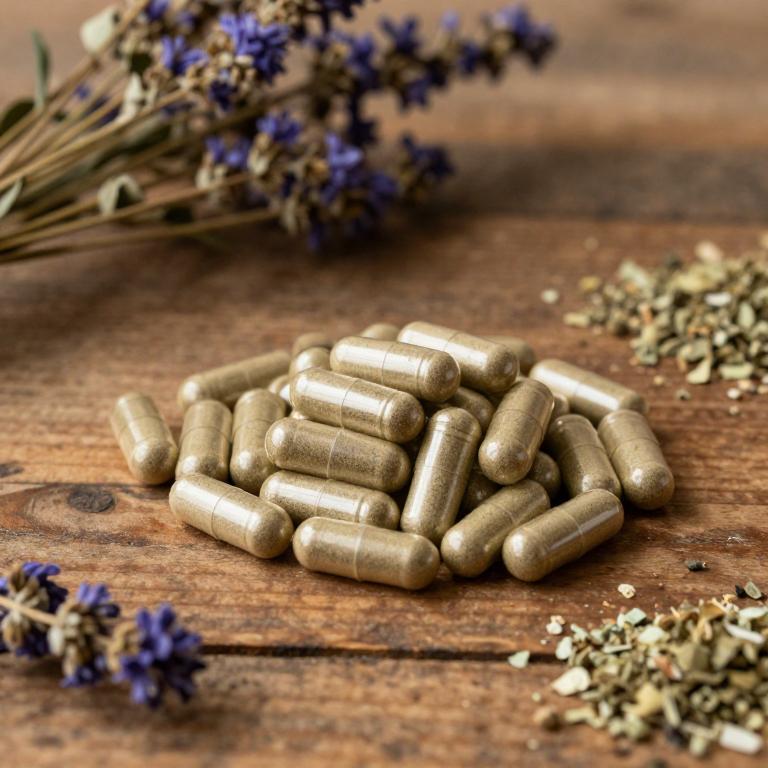
Nepeta cataria, commonly known as catnip, is a herbal remedy that has been traditionally used to alleviate symptoms of a runny nose.
When formulated into capsules, it offers a convenient and standardized way to consume the herb. The active compounds in nepeta cataria, such as nepetalactone, may help reduce nasal congestion and ease sinus pressure by acting as a mild decongestant. These capsules are often used as a natural alternative to over-the-counter medications for mild cold or allergy-related nasal symptoms.
However, it is important to consult with a healthcare professional before using nepeta cataria, especially for individuals with allergies or those taking other medications.
4. Salvia (Salvia officinalis)
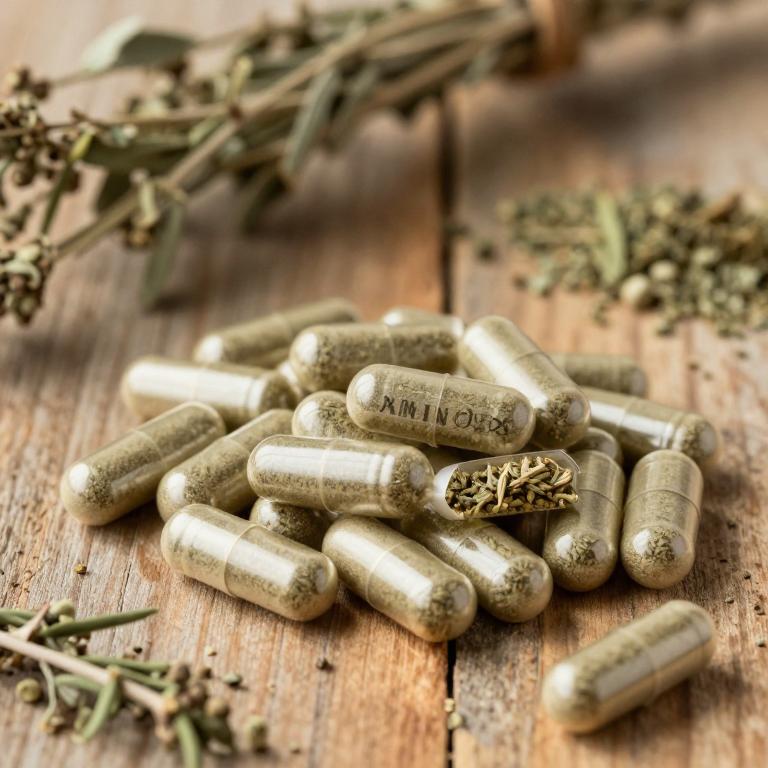
Salvia officinalis, commonly known as sage, has been traditionally used for its potential respiratory benefits, including alleviating symptoms of a runny nose.
Herbal capsules containing salvia officinalis are often formulated to support nasal health by reducing excess mucus production and soothing irritated nasal passages. These capsules are typically made from standardized extracts of the plant, ensuring consistent potency and effectiveness. Some studies suggest that sage may have antimicrobial and anti-inflammatory properties that could help combat common cold and allergy-related nasal congestion.
However, it is important to consult a healthcare professional before using sage supplements, especially for prolonged periods or in combination with other medications.
5. Echinacea (Echinacea purpurea)

Echinacea purpurea herbal capsules are commonly used to support immune function and may help alleviate symptoms of a runny nose, particularly during colds or allergic reactions.
These capsules contain standardized extracts of the purple coneflower, which is known for its potential anti-inflammatory and immune-boosting properties. Some studies suggest that echinacea may reduce the duration and severity of cold symptoms, including nasal discharge. However, results can vary, and it is important to consult with a healthcare provider before use, especially for individuals with allergies or chronic conditions.
As a complementary therapy, echinacea purpurea capsules may offer natural relief for a runny nose when used as part of a holistic approach to wellness.
6. Ceylon cinnamon (Cinnamomum verum)
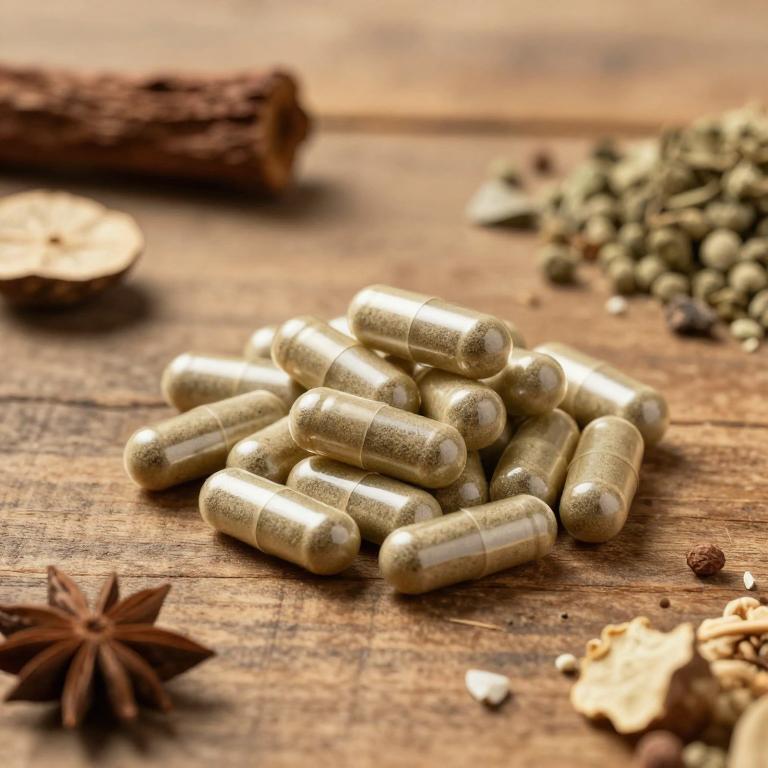
Cinnamomum verum, commonly known as true cinnamon, is often used in herbal remedies for its potential therapeutic properties.
While primarily recognized for its warming and aromatic qualities, some traditional systems of medicine suggest it may help alleviate symptoms of a runny nose by reducing inflammation and supporting respiratory health. Herbal capsules containing Cinnamomum verum are typically made from the bark of the tree and are often combined with other herbs to enhance their effects. However, it is important to note that scientific evidence supporting its efficacy for runny nose is limited, and it should not replace conventional medical treatments.
As with any herbal supplement, it is advisable to consult a healthcare professional before use, especially for individuals with allergies or chronic health conditions.
7. Thyme (Thymus vulgaris)
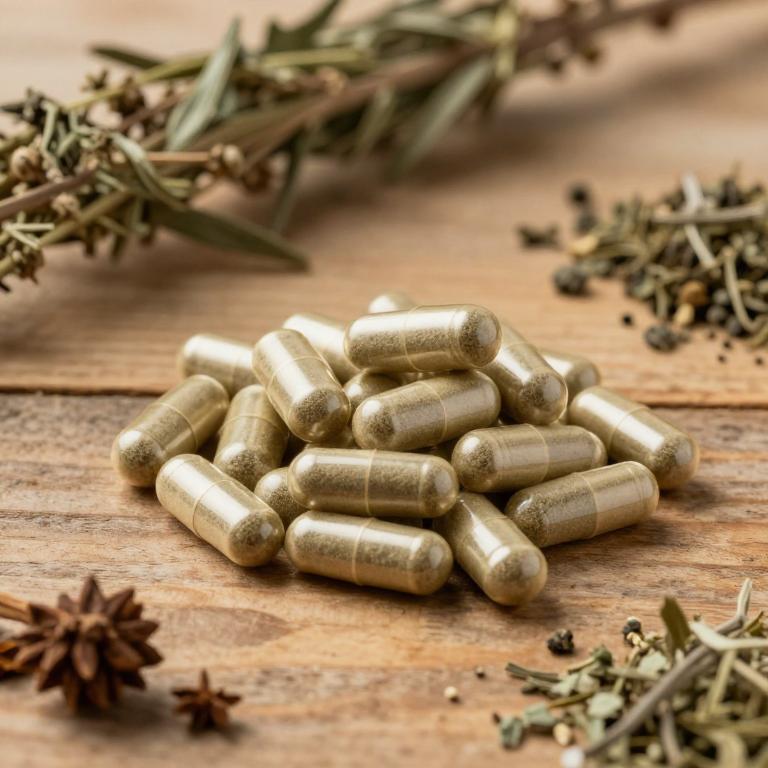
Thymus vulgaris, commonly known as thyme, is a herbal remedy often used to support respiratory health, including alleviating symptoms of a runny nose.
Thymus vulgaris herbal capsules are formulated with standardized extracts of the plant, which contain essential oils and flavonoids that may help reduce nasal congestion and inflammation. These capsules are typically taken as a dietary supplement to support the immune system and ease common cold or allergy-related nasal discharge. They are generally considered safe for most adults when used as directed, though individuals with allergies to plants in the Lamiaceae family should exercise caution.
Thymus vulgaris herbal capsules may be a natural alternative for those seeking relief from a runny nose without pharmaceutical medications.
8. Black pepper (Piper nigrum)
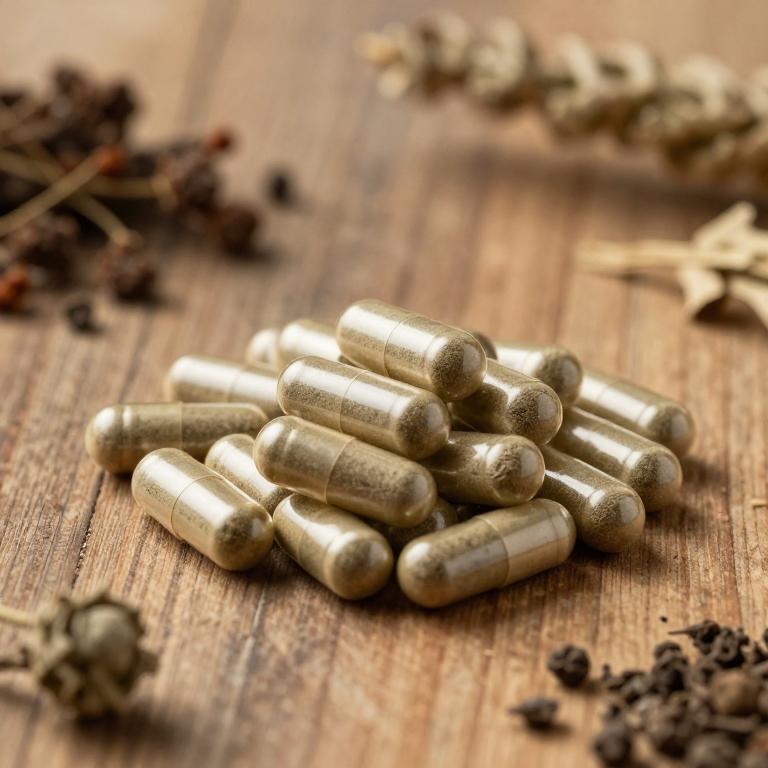
Piper nigrum, commonly known as black pepper, has been traditionally used in herbal medicine for its potential to alleviate symptoms of a runny nose.
The active compound in black pepper, piperine, is believed to have anti-inflammatory and decongestant properties that may help reduce nasal congestion and mucus production. Herbal capsules containing Piper nigrum are often used as a natural remedy to support respiratory health and ease cold or allergy-related symptoms. These capsules are typically made from standardized extracts to ensure consistent potency and effectiveness.
However, it is important to consult with a healthcare professional before using Piper nigrum, especially for individuals with existing medical conditions or those taking other medications.
9. Rosemary (Rosmarinus officinalis)
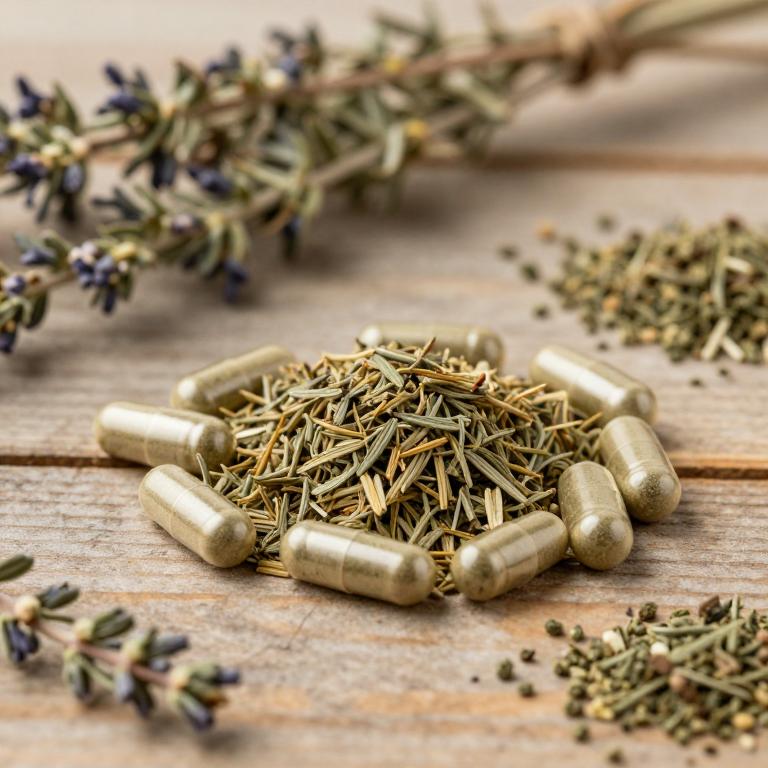
Rosmarinus officinalis, commonly known as rosemary, is a herbal remedy that has been traditionally used to support respiratory health.
Rosemary herbal capsules may help alleviate symptoms of a runny nose by acting as a natural decongestant and anti-inflammatory agent. The essential oils in rosemary, such as cineole and camphor, are believed to help clear nasal passages and reduce mucus production. These capsules are often used as a complementary therapy for mild nasal congestion and allergic rhinitis.
However, it is important to consult with a healthcare professional before using rosemary supplements, especially for individuals with existing health conditions or those taking other medications.
10. Eucalyptus (Eucalyptus globulus)
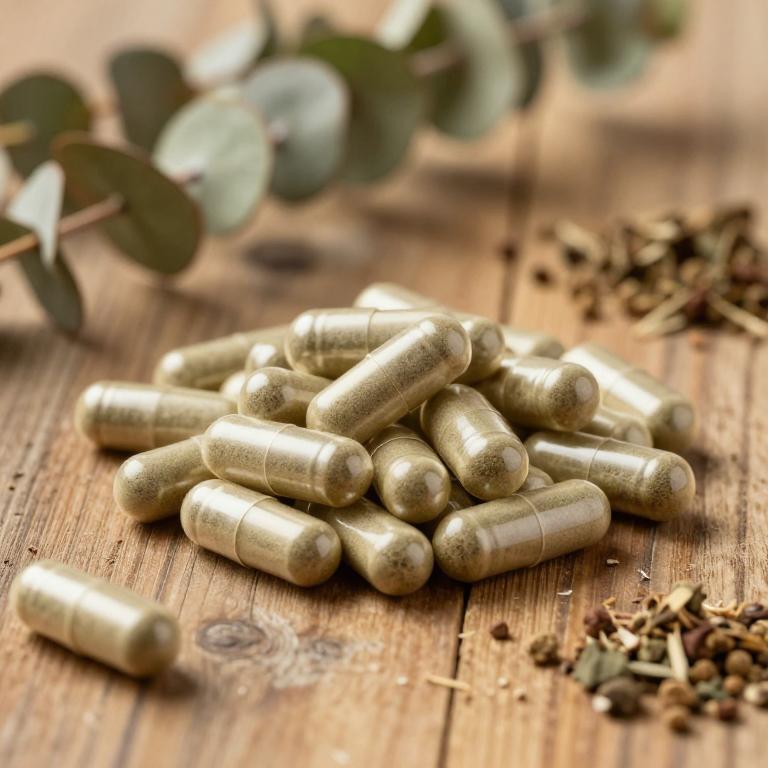
Eucalyptus globulus, commonly known as eucalyptus or gum tree, is a popular herbal remedy used in the form of capsules to alleviate symptoms of a runny nose.
These capsules contain the essential oils and extracts of the eucalyptus plant, which are known for their decongestant and anti-inflammatory properties. The active compounds, such as cineole and terpenoids, help to reduce nasal congestion and soothe irritated nasal passages. Eucalyptus globulus herbal capsules are often used as a natural alternative to over-the-counter cold and allergy medications.
They are generally considered safe when used as directed, though individuals with asthma or allergies should consult a healthcare provider before use.